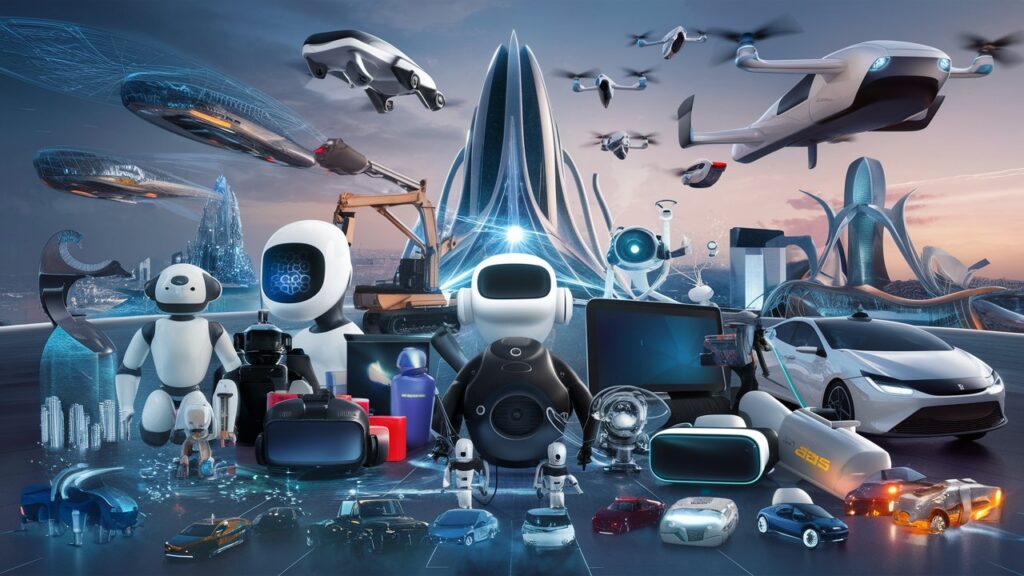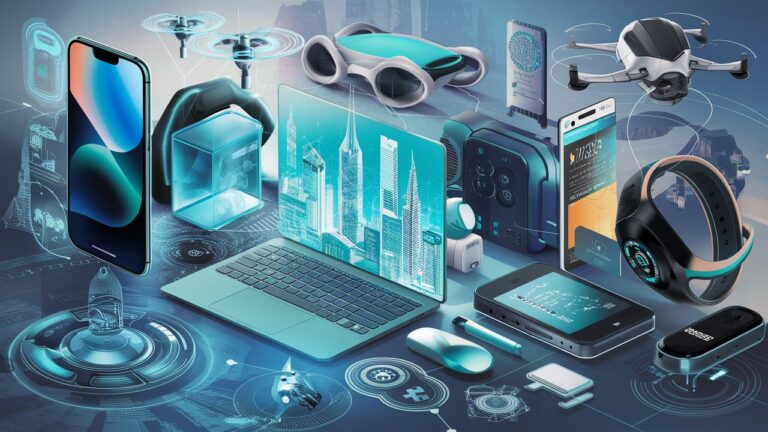Introduction
The rapid evolution of technology continues to reshape industries, redefine human interaction, and challenge traditional norms. From artificial intelligence (AI) to quantum computing, the innovations emerging today promise to revolutionize how we live, work, and connect. At betechit.com, we delve into the most groundbreaking advancements, offering insights into their potential and implications. This article explores key tech trends, their applications, and the ethical questions they raise, providing a comprehensive guide for tech enthusiasts and professionals alike.
1. Artificial Intelligence and Machine Learning: The Engine of Modern Innovation
Artificial Intelligence (AI) and Machine Learning (ML) are no longer futuristic concepts—they are integral to industries ranging from healthcare to finance. AI algorithms now power personalized recommendations on streaming platforms, diagnose medical conditions with unprecedented accuracy, and optimize supply chains for global corporations. Machine Learning, a subset of AI, enables systems to learn from data without explicit programming, driving innovations like self-driving cars and predictive analytics.
However, the rise of AI also sparks debates about job displacement, algorithmic bias, and data privacy. For instance, facial recognition technology has faced criticism for perpetuating racial biases, while automation threatens roles in manufacturing and customer service. Balancing innovation with ethical considerations remains a critical challenge for developers and policymakers.
2. Quantum Computing: The Next Frontier in Computational Power
Quantum computing represents a paradigm shift in processing power, leveraging quantum mechanics to solve problems that classical computers cannot. Unlike traditional bits, quantum bits (qubits) exist in multiple states simultaneously, enabling exponential speed in tasks like cryptography, drug discovery, and climate modeling. Companies like IBM, Google, and startups like Rigetti are racing to achieve quantum supremacy—the point where quantum computers outperform classical ones.
Despite its potential, quantum computing faces hurdles such as error rates, scalability, and the need for ultra-cold operating environments. Moreover, its ability to crack existing encryption methods poses cybersecurity risks. As research progresses, collaboration between governments and tech giants will be vital to harness this technology responsibly.

3. Internet of Things (IoT) and 5G Connectivity: Building a Hyper-Connected World
The Internet of Things (IoT) refers to the network of interconnected devices—from smart home appliances to industrial sensors—that collect and share data. Paired with 5G networks, IoT devices can transmit information at lightning speeds, enabling real-time decision-making in sectors like healthcare (remote patient monitoring) and agriculture (precision farming).
5G’s low latency and high bandwidth are also critical for emerging technologies like autonomous vehicles and augmented reality. However, the expansion of IoT raises concerns about data security, as billions of connected devices become targets for cyberattacks. Ensuring robust encryption and standardized protocols will be essential to safeguard this interconnected ecosystem.
4. Blockchain Beyond Cryptocurrency: Revolutionizing Trust and Transparency
While blockchain is synonymous with cryptocurrencies like Bitcoin, its applications extend far beyond finance. This decentralized ledger technology ensures transparency and immutability, making it ideal for supply chain management, voting systems, and intellectual property protection. For example, Walmart uses blockchain to trace food products from farm to shelf, reducing contamination risks.
Challenges include energy consumption (proof-of-work blockchains require significant computational power) and regulatory uncertainty. Innovations like proof-of-stake and hybrid models aim to address these issues, positioning blockchain as a cornerstone of future digital infrastructure.
5. Augmented Reality (AR) and Virtual Reality (VR): Redefining Human Experience
AR and VR are transforming how we interact with digital content. AR overlays virtual elements onto the real world (e.g., Snapchat filters or IKEA’s furniture placement app), while VR immerses users in entirely digital environments (e.g., Meta’s Horizon Worlds). These technologies are revolutionizing industries like education, where VR simulations train surgeons, and retail, where AR lets customers “try on” clothes virtually.
The barrier to widespread adoption lies in hardware costs and user accessibility. As headsets become more affordable and 5G enhances streaming capabilities, AR/VR could become mainstream tools for entertainment, remote work, and education.
6. Ethical Considerations in Tech Innovation: Navigating the Moral Maze
As technology advances, ethical dilemmas intensify. AI bias, data exploitation, and environmental impact (e.g., e-waste from obsolete devices) demand urgent attention. The development of ethical AI frameworks, stricter data privacy laws (like GDPR), and sustainable tech practices are steps toward accountability.
Moreover, the digital divide persists, with marginalized communities lacking access to cutting-edge tools. Bridging this gap requires inclusive policies and investments in digital literacy programs.
Conclusion
The future of technology is both exhilarating and daunting. Innovations like AI, quantum computing, and IoT hold immense potential to solve global challenges, yet their misuse could exacerbate inequality and insecurity. At betechit.com, we believe in fostering informed discussions about these advancements, empowering readers to embrace progress while advocating for ethical stewardship. As we stand on the brink of a new technological era, collaboration, creativity, and caution will define our collective success.
Frequently Asked Questions (FAQs)
Q1: What is the most impactful tech trend of the decade?
AI and machine learning are arguably the most transformative, influencing sectors from healthcare to entertainment. Their ability to analyze vast datasets and automate processes makes them foundational to other innovations.
Q2: How does 5G differ from previous generations of wireless technology?
5G offers faster speeds (up to 100x quicker than 4G), lower latency (near-instant data transmission), and greater capacity to connect millions of devices simultaneously.
Q3: Are quantum computers a threat to cybersecurity?
Yes. Quantum computers could break traditional encryption methods, but researchers are developing quantum-resistant algorithms to mitigate this risk.
Q4: Can blockchain be used outside of finance?
Absolutely. Blockchain’s transparency and security make it valuable for supply chains, healthcare records, and even voting systems.
Q5: How can individuals prepare for future tech advancements?
Stay informed through platforms like betechit.com, develop digital literacy skills, and advocate for ethical tech policies in your community.
This article combines in-depth analysis with practical insights, positioning betechit.com as a trusted resource for navigating the ever-evolving tech landscape.
